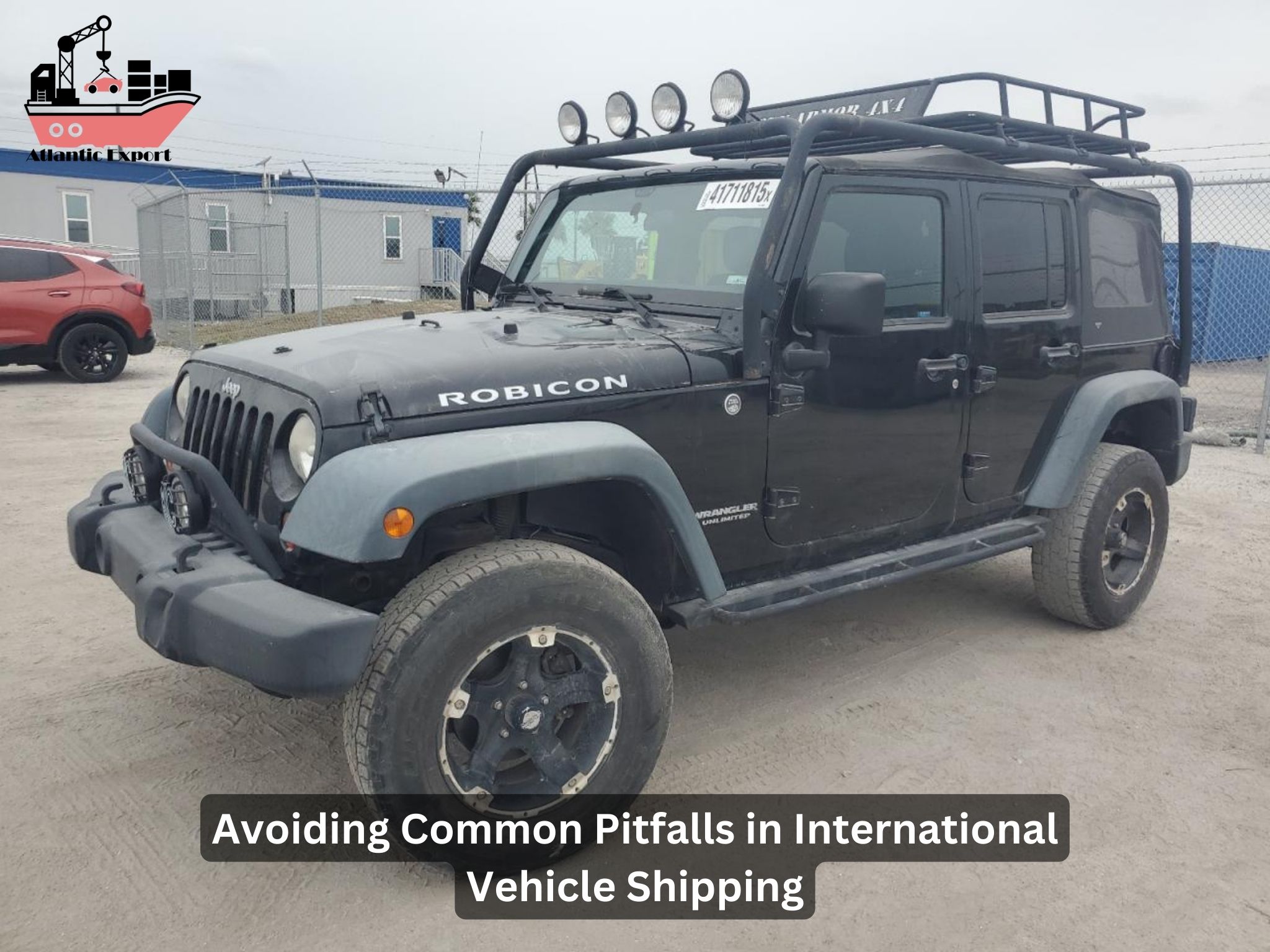International vehicle shipping is an intricate process that demands precision, planning, and awareness of potential challenges. Whether you’re moving across borders or buying a car from a foreign seller, avoiding common pitfalls can save you time, money, and stress. This comprehensive guide provides actionable insights to help you navigate the process with confidence.
Understanding the International Vehicle Shipping Process
1. Initial Planning and Choosing the Right Shipping Service
Selecting the most suitable shipping method is crucial. Options like roll-on/roll-off (RoRo) and container shipping offer different levels of security, cost, and convenience.
- Roll-On/Roll-Off (RoRo): Best for standard vehicles, this method is cost-effective but offers minimal protection.
- Container Shipping: Ideal for high-value or classic cars, containers shield vehicles from damage and weather.
Choosing the right international shipping company ensures your vehicle arrives at its destination country without unnecessary complications.
Avoiding Common Pitfalls in Vehicle Shipping
1. Inadequate Research on Shipping Companies
Not all shipping companies offer reliable services. Look for providers with proven track records in international vehicle transport. Obtain multiple quotes and compare services to ensure you receive the best value.
Consider Atlantic Export for trusted and seamless international shipping solutions tailored to your needs.
2. Overlooking Documentation Requirements
Improper documentation is a leading cause of shipping delays. Essential paperwork includes:
- Bill of Lading
- Vehicle Identification Number (VIN)
- Proof of Ownership
- Customs Clearance Documents
Ensure your documents are accurate and complete to avoid issues during transit.
3. Underestimating Insurance Coverage
A common mistake is assuming the carrier’s insurance fully covers potential damages. Verify the scope of insurance coverage and, if necessary, purchase additional protection to cover risks like theft, loss, or pre-existing damage.
Navigating Customs Regulations and Duties
1. Understanding Customs Duties and Taxes
Every destination country has unique import regulations, which often include taxes, customs duties, and environmental compliance fees. Failing to understand these can result in unexpected costs.
2. Customs Clearance
Partner with a reliable customs brokerage service to streamline the clearance process. This minimizes delays and ensures compliance with all local requirements.
Minimizing Delays and Costs
1. Proper Vehicle Preparation
- Thorough Inspection: Document the condition of your car with photographs to prove it was free of damage before shipping.
- Remove Personal Belongings: Personal items inside the vehicle can lead to customs penalties or delays.
- Empty the Fuel Tank: Most regulations require fuel levels to be below 25%.
2. Avoiding Hidden Fees
Be wary of hidden fees for services like storage, late pickups, or additional customs duties. Transparent providers like Atlantic Export clearly outline all potential costs upfront.
3. Communicating Clearly with Service Providers
Miscommunication with shipping companies often leads to errors. Regular updates and clear instructions can prevent unnecessary delays.
Considerations for Choosing a Shipping Partner
1. Reputation and Reliability
Choose a shipping company with strong reviews and a history of on-time delivery.
2. Pricing Transparency
Reliable companies provide detailed cost breakdowns. Hidden fees can inflate the overall shipping costs unexpectedly.
3. Comprehensive Services
Opt for providers offering end-to-end services, including logistics management, customs brokerage, and insurance coverage.
Atlantic Export excels in providing efficient, transparent, and dependable solutions for international shipping.
Steps to Simplify International Car Shipping
Step 1: Research Regulations
Start by understanding the destination country’s import rules. Non-compliance can lead to fines or delays.
Step 2: Select a Reputable Carrier
Ensure the carrier has experience with your vehicle type and destination.
Step 3: Secure Comprehensive Insurance
Invest in additional insurance for peace of mind during transit.
Step 4: Prepare Thorough Documentation
Compile all required paperwork in advance.
Step 5: Schedule Pickup and Delivery
Coordinate the pickup and/or delivery dates to align with your timeline and reduce storage costs.
Common Mistakes to Avoid
1. Skipping Pre-Shipment Inspections
Failing to inspect the vehicle can lead to disputes over damage claims. Always perform a thorough inspection before and after shipping.
2. Ignoring Weight and Size Restrictions
Oversized vehicles may require special arrangements, leading to higher costs and possible delays.
3. Disregarding Transit Times
Shipping across borders takes time, especially with container shipping. Plan accordingly to avoid inconvenience.
Why Choose Atlantic Export for Your Vehicle Shipping Needs?
At Atlantic Export, we specialize in seamless international car shipping services designed to meet your specific needs. Our commitment to transparent pricing, comprehensive insurance coverage, and exceptional customer service ensures a hassle-free experience. Whether shipping a single car or managing a fleet, we deliver unmatched reliability.
FAQs
1. What is the most cost-effective way to ship a vehicle internationally?
The Roll-On/Roll-Off (RoRo) method is often the cheapest, but container shipping offers added protection for valuable cars.
2. Can personal belongings be shipped with the vehicle?
Most companies discourage this due to customs regulations. Always verify with your carrier beforehand.
3. How long does international vehicle shipping take?
Transit times vary by destination country and shipping method. It typically ranges from 2 to 8 weeks.
4. How can I avoid hidden shipping costs?
Choose a transparent provider like Atlantic Export, review contracts thoroughly, and clarify all fees upfront.
5. Do I need additional insurance for my vehicle?
While most carriers provide basic coverage, additional insurance is recommended for comprehensive protection.

Leave a Reply